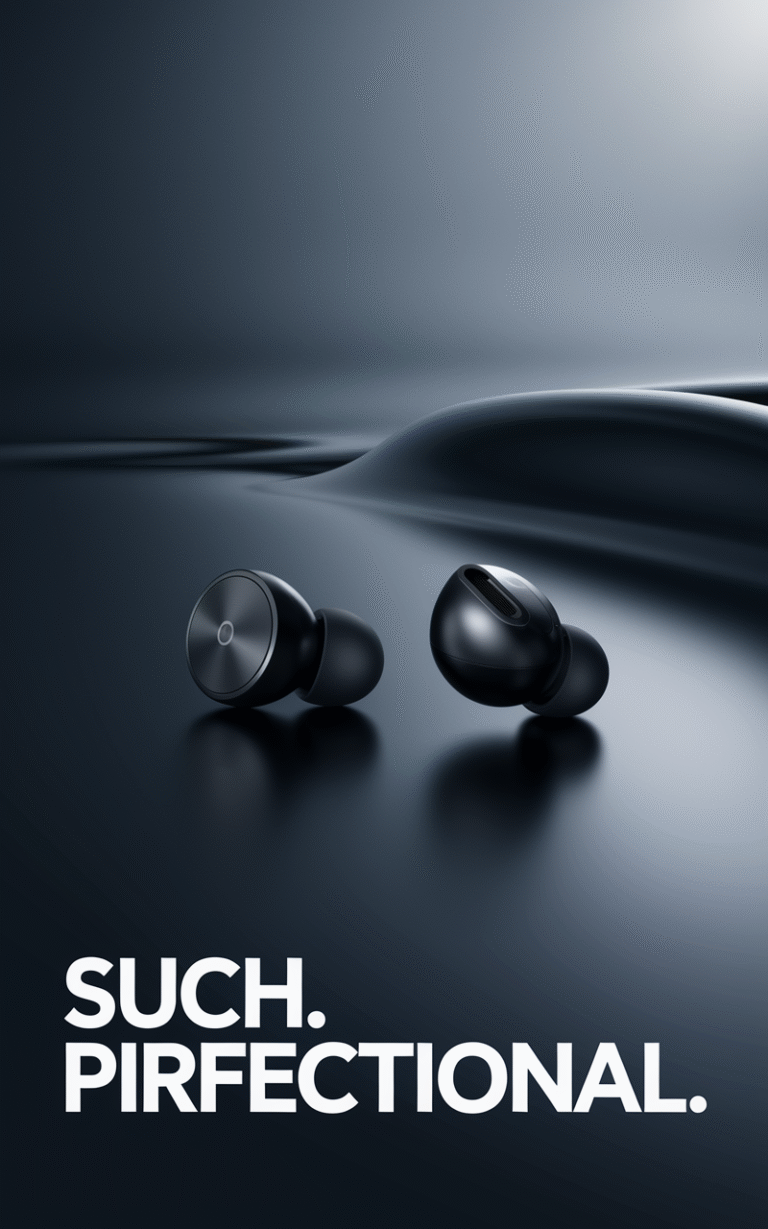Mastering the Art of Perfect Sound: Expert Tips to Maximize Your Wireless Earbuds for Everyday Life, Workouts, and Travel
Discover expert tips to optimize your wireless earbuds’ sound quality and battery life for daily use, exercise, and travel. Enhance every listening experience now.
Understanding Wireless Earbuds and Sound Quality Fundamentals
Before optimizing your earbuds, it’s essential to understand factors that influence sound quality and performance. Wireless earbuds rely on Bluetooth technology, compact drivers, and noise control features to deliver audio. However, several variables affect the experience.

Bluetooth codec compatibility plays a crucial role. Codecs like AAC, aptX, and LDAC impact audio fidelity and latency. Your device and earbuds must support compatible codecs to enjoy high-definition sound. Additionally, the fit and seal inside your ear canal can alter bass response and reduce external noise.
Battery performance is another key factor. Over time, battery capacity decreases, affecting playback duration and sometimes sound consistency. Keeping earbuds charged properly and minimizing frequent full discharges preserves battery life.
Moreover, environmental noise influences your listening experience. Features such as Active Noise Cancellation (ANC) and Transparency mode help manage ambient sounds. Correctly using these modes depending on your surroundings can improve focus and reduce listening fatigue.
Key Components Affecting Sound Quality
- Driver size and type: Larger drivers can produce better bass and wider soundstage. Balanced armature drivers emphasize clarity.
- Bluetooth codec support: aptX HD and LDAC offer higher bit rates compared to SBC.
- Ear tip choice and fit: Silicone, foam, or custom tips impact noise isolation and comfort.
- Firmware and app updates: Manufacturer software updates can enhance audio algorithms and fix bugs.
Understanding these components enables better decisions when tuning or using wireless earbuds.
Optimizing Wireless Earbuds for Everyday Life
Using wireless earbuds for day-to-day activities demands a balance between comfort, functionality, and sound quality. As you switch environments and audio content, adapting settings enhances your listening experience.

Tips for Improving Everyday Use
- Select the right ear tips: Use foam tips for improved noise isolation in noisy offices or transit. Silicone tips work well for moderate noise levels. A proper fit prevents sound leakage and discomfort.
- Adjust equalizer (EQ) settings: Most smartphones and earbuds apps feature EQ controls. Boost mids and highs for podcasts, or enhance bass for music genres like hip-hop.
- Enable transparency mode selectively: When walking outdoors or during conversations, transparency mode helps you stay aware of surroundings without removing earbuds.
- Manage notifications and interruptions: Use the earbuds app to customize notification sounds and voice assistant integration to avoid distractions.
- Maintain connection stability: Avoid interference by keeping your device within recommended Bluetooth range (usually 30 feet). Remove obstructions when possible.
Caring for Battery Health Daily
- Avoid letting batteries fully drain frequently; charge when reaching 20-30%.
- Store earbuds in their case when not in use to preserve charge and protect from damage.
- Keep charging contacts clean to ensure efficient power transfer.
- Update firmware regularly for power management improvements.
Enhancing Your Workout Experience with Wireless Earbuds
Exercise places unique demands on earbuds. Sweat resistance, secure fit, and motivational sound quality become crucial. Optimizing earbuds for workouts helps maintain focus, improve performance, and prevent technical issues.
Workout-Specific Best Practices
- Use sweatproof and water-resistant models: Check IPX ratings for protection against moisture and dust.
- Secure fit tips: Ear hooks, wings, or customizable tips prevent earbuds from slipping during vigorous activity.
- Choose upbeat playlists with impactful bass: A strong, energizing soundtrack can boost workout endurance.
- Adjust ANC or noise isolation: For outdoor runs, transparency mode can ensure safety without sacrificing sound. In gyms, ANC blocks distractions.
- Limit volume levels: Prolonged listening at high volumes risks hearing damage. Follow the 60/60 rule—listen at 60% max volume for no more than 60 minutes continuously.
Maintaining Earbuds After Workouts
- Wipe earbuds and tips with a dry cloth after each session to remove sweat and grime.
- Avoid using liquids near charging ports to prevent damage.
- Store earbuds in a ventilated case to allow moisture evaporation.
- Regularly clean ear tips and replace them when worn out to ensure hygiene and fit.
Maximizing Wireless Earbuds for Travel
Travel introduces challenges such as loud environments, long battery use, and device compatibility. Proper preparation and usage techniques heighten comfort and audio clarity, making flights, commutes, and layovers more pleasant.

Travel Audio Optimization Strategies
- Leverage Active Noise Cancellation: Use ANC for flights and noisy terminals to reduce engine hum and chatter. Choose earbuds with effective ANC for best results.
- Carry a portable charging case: Extended trips may require on-the-go charging; ensure your case holds multiple charges.
- Download playlists and offline content: Avoid streaming variability by pre-downloading audio before departure.
- Customize sound profiles per environment: Some apps allow preset profiles for travel, work, or relaxation. Select accordingly.
- Use multipoint Bluetooth pairing: Connect earbuds to multiple devices—phone and tablet—without switching manually.
- Prepare for security checks: Have earbuds easily accessible yet secure to speed through airport screening.
Flight Considerations
- Keep volume lower to minimize ear pressure differences caused by altitude changes.
- Use foam ear tips for better comfort during long flights.
- Activate airplane mode on paired devices but keep Bluetooth on to continue using earbuds safely.
Troubleshooting Common Wireless Earbuds Issues
Despite improvements, users may encounter occasional problems. Addressing them promptly avoids frustration and prolongs device life.
Frequent Problems and Solutions
- Connectivity drops: Reset earbuds and device Bluetooth; clear paired device cache; keep software updated.
- Uneven sound or one ear not working: Clean earbud mesh; check for firmware patches; test with different devices.
- Poor battery life: Calibrate battery by fully charging and discharging a few times; replace case batteries if feasible.
- Fit discomfort: Try alternative ear tips; reposition earbuds; consult product guides for recommended wearing techniques.
- Microphone issues during calls: Clean microphone openings; test in quiet environments; adjust voice assistant settings.
Future Trends and Staying Ahead With Wireless Earbuds
As technology evolves, earbuds integrate smarter features like adaptive sound, AI noise cancellation, and fitness tracking. Staying informed helps you exploit new capabilities as they arise.
- Look out for earbuds with customizable sound profiles using AI that adapts to your hearing preferences and surroundings.
- Expect longer battery lives fueled by improved power efficiency and charging tech.
- Integration with virtual assistants will expand voice command options.
- Biometric sensors embedded in earbuds will monitor health metrics during workouts and daily wear.
In conclusion, mastering the art of perfect sound with wireless earbuds involves understanding hardware, personalizing settings, and maintaining devices. Adapting your approach for everyday use, workouts, and travel enhances audio clarity, comfort, and longevity. By applying these expert tips, you unlock the full potential of your earbuds and enjoy a richer listening experience every day.
